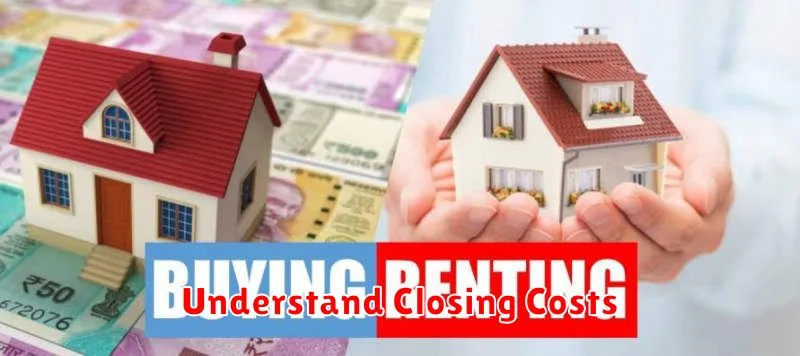Are you tired of renting and ready to make the leap into homeownership? Transitioning from renting to buying can be a complex process, but with careful planning and the right information, it can be a rewarding and achievable goal. This comprehensive guide will provide you with the necessary steps to successfully navigate the journey from being a renter to becoming a homeowner. We will cover crucial aspects such as budgeting, saving for a down payment, understanding mortgages, and navigating the real estate market. Whether you’re a first-time homebuyer or looking to re-enter the housing market, this article will equip you with the knowledge and resources to confidently transition from renting to buying.
Making the transition from renting to buying is a significant financial decision. Understanding the financial implications of homeownership is essential. This article will delve into the details of mortgage pre-approval, closing costs, property taxes, and homeowner’s insurance, empowering you to make informed choices. We will also explore strategies for improving your credit score, finding the right real estate agent, and negotiating offers effectively. By following these steps, you can confidently navigate the exciting, yet often daunting, transition from renting to buying your own home.
Assess Your Financial Readiness
Transitioning from renting to buying requires careful financial evaluation. Saving for a down payment is crucial. Determine how much you can comfortably afford to put down, keeping in mind that a larger down payment can lead to better loan terms.
Check your credit score. A good credit score is essential for securing a mortgage at a favorable interest rate. Review your credit report for any errors and take steps to improve your score if necessary.
Calculate your debt-to-income ratio (DTI). Lenders use this ratio to assess your ability to manage monthly mortgage payments. A lower DTI increases your chances of loan approval.
Build a Home Buying Budget
Creating a realistic home buying budget is crucial. This involves more than just the listing price. Factor in additional expenses like closing costs, property taxes, homeowner’s insurance, and potential maintenance.
Start by calculating your debt-to-income ratio (DTI). Lenders use this to assess your borrowing capacity. A lower DTI improves your chances of loan approval and a favorable interest rate. Next, determine your comfortable monthly mortgage payment. Online calculators can help estimate this based on your down payment, loan term, and interest rate.
Finally, get pre-approved for a mortgage. This provides a clear picture of how much you can borrow and solidifies your budget. Remember, staying within your budget ensures a financially sound home purchase.
Check Your Credit Score
A crucial first step in the home-buying process is understanding your credit health. Your credit score plays a significant role in determining your eligibility for a mortgage and the interest rate you’ll receive.
Obtain your credit report from each of the three major credit bureaus (Equifax, Experian, and TransUnion). Review the reports thoroughly for any inaccuracies and dispute any errors promptly. A higher credit score typically translates to better loan terms. Lenders generally look for scores above 620, though higher scores often qualify you for lower interest rates.
Research Mortgage Options
Understanding mortgage options is crucial in the home-buying process. Different mortgages come with varying interest rates, terms, and requirements. Take the time to research and compare.
Consider these common types: fixed-rate mortgages offer stable monthly payments, while adjustable-rate mortgages (ARMs) feature fluctuating rates that can change over time. Government-backed loans, like FHA and VA loans, offer benefits for eligible borrowers.
A mortgage calculator can help estimate monthly payments based on loan amount, interest rate, and loan term. This can be a valuable tool in determining affordability.
Understand Closing Costs

Closing costs are essential expenses paid at the closing of a real estate transaction. These costs are separate from your down payment and are associated with finalizing the purchase of your home. Understanding these costs is crucial for budgeting accurately.
Closing costs typically range from 2% to 5% of the home’s purchase price and can include various fees. Some common examples include lender fees, appraisal fees, title insurance, and government recording charges.
Save for a Down Payment
Saving for a down payment is a crucial step in the home-buying process. The down payment is the portion of the purchase price you pay upfront. A larger down payment can lead to better loan terms and lower monthly mortgage payments.
Determine your target down payment amount. While 20% is often cited, smaller down payments are possible, sometimes as low as 3-5%. However, be aware that a smaller down payment may require private mortgage insurance (PMI).
Create a savings plan. Set a realistic savings goal and timeline. Automate regular transfers to a dedicated savings account. Explore ways to cut expenses and boost your income to accelerate your savings.
Explore Neighborhoods
Once you have a clear budget and a pre-approval, begin exploring neighborhoods that align with your needs and financial capabilities. Location plays a crucial role in homeownership. Consider factors such as commute times, school districts, amenities, and overall safety.
Visiting potential neighborhoods at different times of day can give you a better sense of the environment and activity levels. Don’t hesitate to talk to current residents to gain valuable insights about the community.
Get Pre-Approved
Getting pre-approved for a mortgage is a crucial step in the home-buying process, especially when transitioning from renting. Pre-approval provides a clear picture of your borrowing power and helps you determine a realistic budget.
This involves a lender reviewing your financial information, including credit score, income, and debts, to determine how much they are willing to lend you. A pre-approval letter shows sellers you’re a serious buyer, giving you a competitive edge in the market.
It’s important to shop around with different lenders to compare interest rates and loan terms before committing to a mortgage. Don’t confuse pre-approval with pre-qualification, which is a less rigorous assessment of your finances.
Find a Real Estate Agent
Working with a knowledgeable real estate agent is crucial during the home-buying process. A good agent will provide valuable insights into the market, guide you through negotiations, and help you navigate complex paperwork. Finding the right agent can significantly streamline your transition from renting to owning.
Look for an agent with experience in your desired area. Ask friends and family for referrals. Don’t hesitate to interview multiple agents before making a decision. A good agent will be responsive to your needs and effectively communicate throughout the entire process.
Time the Move Strategically

Timing your transition from renting to buying is crucial. Market conditions significantly impact affordability. A buyer’s market, characterized by lower prices and less competition, presents a favorable opportunity. Conversely, a seller’s market can make homeownership more challenging due to higher prices and bidding wars.
Interest rates also play a vital role. Lower rates translate to lower monthly mortgage payments, making homeownership more accessible. Monitor interest rate trends and factor them into your decision-making process.
Your personal financial situation is equally important. A stable income, healthy credit score, and sufficient savings for a down payment are essential. Carefully assess your finances to determine the optimal time to make the leap to homeownership.

